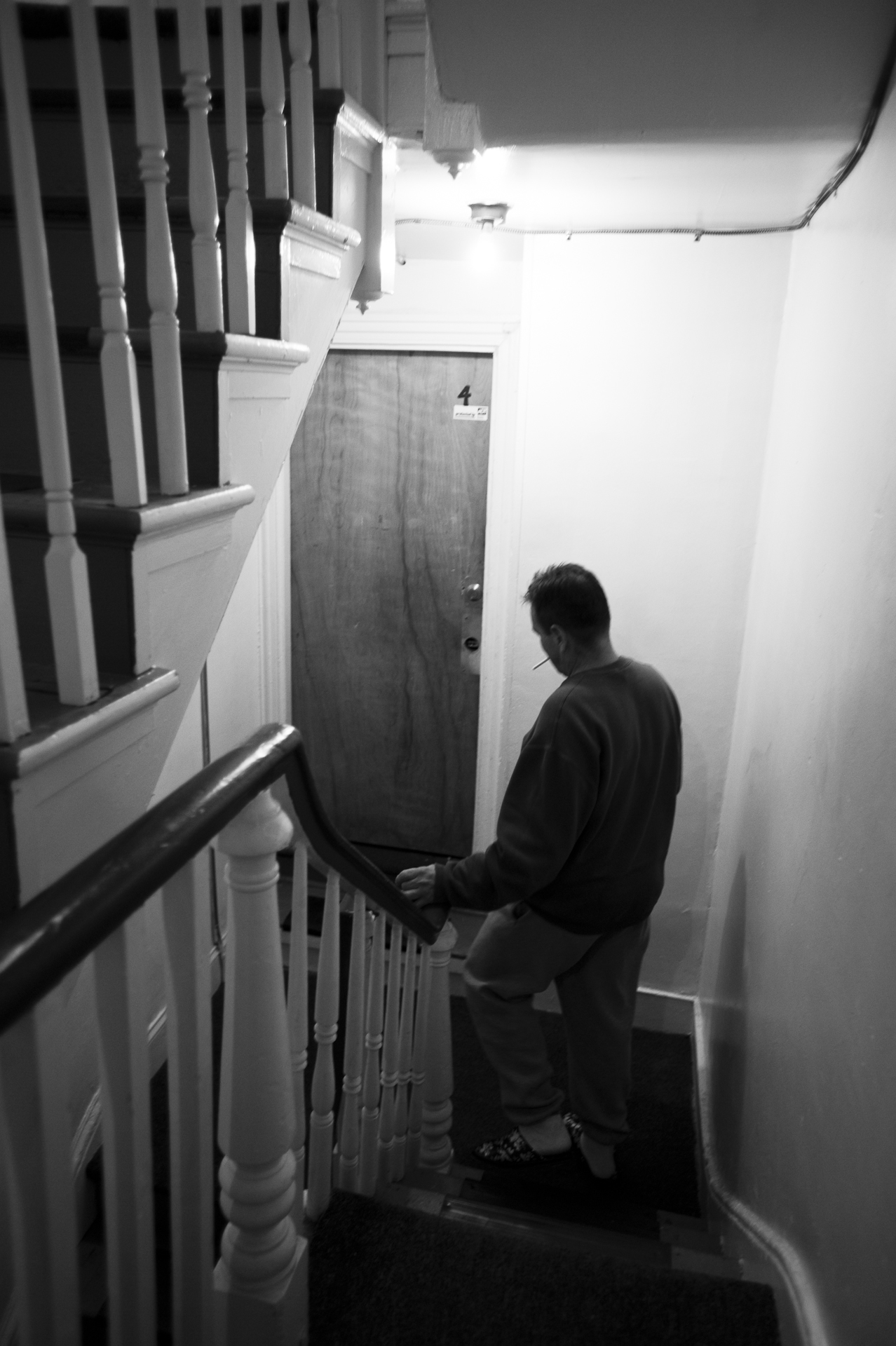Creating Lasting Improvement in the Lives of Homeless People
Researchers are learning what real estate agents have long known: location matters.
A researcher in the USC School of Social Work has assembled a multi- disciplinary team to study how the "built environment" of neighborhoods and surroundings influences the long-term health of homeless people who live in state and federally supplied housing.

Long-term homelessness is strongly associated with many serious chronic and acute health problems, as well as premature death, explained assistant professor Benjamin Henwood, PhD, LCSW. And while getting homeless people off the streets and into permanent supportive housing is an important first step, it doesn't necessarily result in the hoped-for improvements.
"Our health habits and behaviors are shaped by the context of the built environment we live in, including everything from grocery shopping to social interactions," said Henwood. "To reduce the enormous health disparities among homeless people, we need to bring the entire built environment into the discussion."
Many homeless people present a mix of health concerns, including physical infirmities and disease, addiction and mental illness. They face social challenges, as well, including stigma and isolation from neighbors, and a shortage of helpful relatives and friends.
“We know that these factors can make it difficult for residents of supportive housing to see doctors or other health care providers," said Henwood. “They may also make it hard to engage in important habits like exercise, nutritious eating, maintaining social connections, and other behaviors that reduce stress and boost health and well-being.”
Team building to focus different perspectives on a complex issue
Studying the many aspects of the built environment requires a multi-disciplined approach that taps many different fields. These include public health and preventive medicine, psychology, social work, even urban planning and public policy, said Henwood.
A team building grant offered through the Pilot Funding program of the Southern California Clinical and Translational Sciences Institute (SC CTSI) helped Henwood bring together potential research collaborators and supportive housing organizations as community partners.
Such collaboration resulted in Henwood and colleagues publishing a recent article in the American Journal of Public Health entitled, "Permanent Supportive Housing: Addressing Homelessness and Health Disparities?"
Last spring, Henwood also assembled a group of community partners and scholars from USC, including the Keck School of Medicine, and other Southern California institutions, such as University of California, Irvine, for a colloquium to shape research questions and methodologies to study the complicated interactions between supportive housing residents and their environments.
One such methodology will involve mobile-phone self-reporting to gather data about residents of permanent supportive housing, an approach refined by Henwood collaborator Genevieve Dunton, PhD, MPH, assistant professor of research in the Department of Preventive Medicine at the Keck School of Medicine.
"The SC CTSI team-building grant fostered a collaboration between Preventive Medicine and Social Work, which led to an exciting new project that will use real-time data capture strategies with mobile phones to understand how context, stress, and mental health symptoms influence physical activity and other health behaviors among individuals with severe mental illness," said Dunton. "The goal of this new grant is to uncover targets for mobile health interventions in this at-risk population."
The team is currently conducting a SC CTSI funded mHealth pilot project that will serves as the basis to pursue additional research funding.



